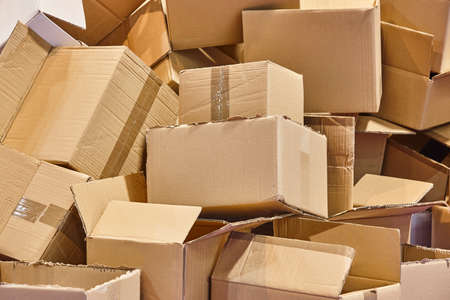An attempt at an assessment.
For a long time now, online retailing has been an integral part of the shopping behaviour of shoppers. It covers all areas of consumer goods such as fashion, cosmetics, household goods, electrical goods and furniture. E-commerce in Germany makes it easy for shoppers to have a collection of goods sent to their homes, to let the items work in their own rooms rather than in the shop, and then to return the item to the rack or shelf... pardon, back to the retailer. A partially granted right of return of 100 days lets the customer relax even more when shopping online; return labels are often already temptingly enclosed. This can be viewed critically, especially since ecologically minded customers also suffer.
But not everything may be resold after being returned or is not accepted in its original packaging by the next customer. Some products are also too cheap that it is not economically worthwhile for the retailer to subject them to a procedure for resale. Thus, about 17 million returned items, that is 1.3 % of the returns, end up directly in the rubbish, perhaps only tried on or switched on once, half are declared defective. For about 1 million products, the brand or patent owner prescribes disposal. With 70 % of all returns, clothing and fashion items are at the top of the list. Other categories such as entertainment, leisure, furnishings, household articles and other items are fairly evenly distributed at around 5 %. Not only are the material resources wasted, but we can also see that somewhere far away from us, people are preparing to produce and deliver these articles for little pay. These jobs were pointless. Some of these 17 million returns are donated or, if the profit margins are lucrative, 93 % are sold on as new. Figures show that the disposal of a product costs on average around 85 ct, provided the value of the goods is less than 15 euros. So it becomes obvious why so many returns are thrown away. It is assumed that of the 17 million returns to be disposed of, 40 % would be suitable for donation, which would correspond to almost 7 million products. It should be noted, however, that the legislator requires VAT to be paid, which means that the trader suffers a further financial loss on top of the necessary logistics.
Incentives are being considered to reduce or control returns and the resulting negative consequences, i.e. destruction of resources, CO2 footprint (about 795 thousand tonnes, an equivalent of 340 million litres of petrol or 8530 tanker trucks filled), etc. Statistics show that only 3.5 % of retailers are actually aware of the CO2 consumption of returns. The sensible implementation of such a strategy is difficult, as it must also be verifiable and ultimately affordable. What the customer often doesn't see is that the return shipment, which is reported to be free of charge, incurs costs of about 7 euros, including postage and handling fees. Since the seller does not pay this sum from his own coffers, these costs are passed on to all customers. In any case, this applies to the 89% of German retailers who offer a cost-neutral return service. The situation is somewhat different abroad, where only 52% of retailers enclose a free returns label, 30% demand that the customer either pay the full cost or 18 % pay a fee. This sum is estimated at 5 billion euros.
The data from 2020/21 used in a study by the University of Bamberg for statistics include a turnover from statistically surveyed online retail of 59 billion euros, of which 1.25 billion packages were sent and returned. According to IFH Cologne and Statista, e-commerce turnover in Germany was 73 billion euros. Thus, the data determined appear to be reliable.
Correct citation of the study Asdecker, B./Felch, V./Karl, D. (2022): "European Return-o-Meter - Ergebnisbericht Teil 1: Deutschland vs. Rest-EU", Forschungsgruppe Retourenmanagement, Otto-Friedrich-Universität Bamberg, pp. 1-82.

